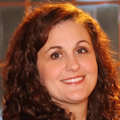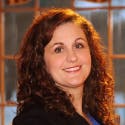Want to keep your passion for hygiene? Raise the standards for yourself
There is an expression, “Dance with the one who brought you.” It means staying loyal to those who support you. It sounds pretty good, right? In my years of clinical experience, corporate human resources, and consulting, I sometimes see this play out in a way that is less than ideal, however. I see that it can mean adapting to a work environment even when it is not one that is aligned with who you are and what you believe in.
According to Scientific American magazine, “Our brains are essentially social brains. We share information; we create and pass on knowledge. That's the means by which humans are able to adjust to new situations."1 It is human nature to try to fit in to a new situation, particularly one where our ability to earn necessary income and remain employed is tied in to that situation. Where it can become a problem is when our standards and professionalism are lowered in order to conform to the atmosphere. We then become less of who we really are and perform in a way that is contradictory to what we feel is true.
Compromise is a normal part in any relationship, and in some situations, there is more than one correct answer. If you go through your career bailing any time someone doesn’t agree with you, you will more than likely be looking at a lot of job movement and dissatisfaction in your career. Sometimes, however, the standard is such that it doesn’t match your internal compass. When a situation is such that it is in conflict with that, it is then that we need to either professionally attempt to resolve it or take the road of finding alternative employment. This requires us to look internally into what we feel to be right. Further, we are bound by legal, ethical, and moral components.
We are also bound to not settle to be less of who we want to be as professionals. We can’t stifle ourselves from growth, development and learning. Burnout and feeling out of touch with ourselves leads to work and personal dissatisfaction. This is not in our best interest for our health or long-term career satisfaction and is certainly not in the best interest of our patients.
This leads us to the idea of our own internal standards, passion, and purpose in our career. Sometimes, even without negative external standards like those described above, professionals lose their spark. There can be periods of boredom and burnout in any career, but it is up to us as professionals to either continue to find ways to keep energized or to ask ourselves if it may be time to make bigger changes.
Without doing so, we set ourselves up for going to work every day in a job we are not happy about, doing work that doesn’t satisfy us and becoming stagnant. Life is simply too short to go through the motions like that. Further, would you want to see a provider that was tuned out and disinterested—one who goes to work simply to receive a paycheck? Would you want to employ or work alongside someone like that? Likely not. I would guess that patients and colleagues feel the same way. We alone have the power over our mindsets and development. With that, here are some thoughts.
Be as energized as you were on day one.
Consider where you were when you first graduated. Everything was exciting and new. You had visions of making a difference. Some of the best advice I received was from my Dean right before I graduated. “Always be as good as you are today.” It is advice that I took to heart and like to think I have incorporated over the life of my career. It has provided me with long-term career satisfaction, as well as opened the door to so many opportunities. Just in the way negative energy spreads more negativity, the goals of excellence and positive energy can lift those around you and can greatly impact not only your own mindset but the environment you are in as well.
Don’t be afraid to embrace positive change.
Maybe it’s a new office, a different approach to work or patient care, or even a shift in attitude. Anytime we step outside of our comfort zone, we grow. Take the time to listen to different ideas and perspectives and pursue changes that ignite your passion.
If you can, find areas in your office that interest you and see where you can help. For example, maybe you have an interest in marketing. Sure, it’s not in the scope of your job, but there may be a tremendous learning and growth opportunity there for you when you embrace work in the office that is beyond your operatory. I learned some of the basics that I needed for a role in dental consulting when I started to seek out learning opportunities beyond my clinical space, and I was fortunate to have worked for a doctor who not only supported me, but saw the value in my learning other roles.
Take time every day for personal development.
Whether it be reading, watching a Ted Talk, or listening to a podcast, take some quiet time each day to invest in learning about yourself and the world. Personal development not only provides us with self-awareness, but also gives us better direction and focus. It also helps us to be more purposeful, resilient and better relationship builders. For me, I have found great value in just 15 minutes per day.
Stay current.
We are in a field that is constantly changing and developing. We owe it to ourselves and our patients to stay committed to lifelong learning and evidence-based decisions. We also owe it to ourselves. Without continued learning and growth we not only become obsolete, but also burn out from boredom.
Find your people.
Your vibe really does attract your tribe. Surround yourself with people and work situations where there is positivity and passion. Find those who encourage you to be your highest self. Even if you are not finding it in your current work environment, consider alternatives like joining professional networking groups, study clubs, or becoming part of your state association.
Speak up using solid facts and professional demeanor.
When you are in a situation where you feel there are issues, speak up. Do so in a professional, respectful manner and arm yourself with facts to back up what you know and why it may be in the best interest of the office to make a change. When you approach it from a standpoint of wanting to make a positive impact versus needing to be right, it can be harder for people to argue with that. Similarly, know that there are certain areas that are up to the practice owner. It is then that you need to decide if you can live with the differences or if it’s time to move on. Obviously, remove yourself and act accordingly in situations that you know to be fraudulent, illegal, or unethical. You are a licensed professional.
As we enter a new year, set professional goals for yourself along with your personal goals. You will find that investment in yourself yields many rewards. Also, when we raise the standards professionally, we find ourselves more engaged and fulfilled in the work we do. That positive energy draws more positivity to you. This is not only a benefit to us, but to our employers and to the patients entrusted to our care.
Reference
1. Massey, Nathanael. “Humans May Be the Most Adaptive Species.” Scientific American, 25 Sept. 2013, www.scientificamerican.com/article/humans-may-be-most-adaptive-species/.
About the Author

Julie Whiteley, BS, RDH
Julie Whiteley, BS, RDH, is certified in human resources. She holds degrees in business administration and dental hygiene and has worked extensively in both fields. She is on the faculty of Massachusetts College of Pharmacy and Health Sciences University in Boston. Julie bridges her knowledge and experience from business, clinical hygiene, and teaching to deliver information and programs that enhance dental practices. Contact her at [email protected].

